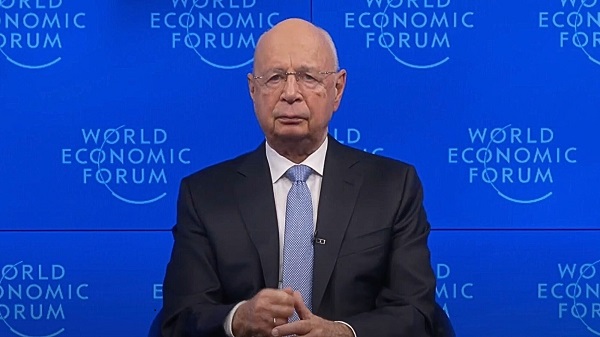Censorship Industrial Complex
WEF Pushes Public-Private Collaboration to Accelerate Digital ID and Censorship

|
|
Alberta
Alberta bill would protect freedom of expression for doctors, nurses, other professionals

From LifeSiteNews
‘Peterson’s law,’ named for Canadian psychologist Jordan Peterson, was introduced by Alberta Premier Danielle Smith.
Alberta’s Conservative government introduced a new law that will set “clear expectations” for professional regulatory bodies to respect freedom of speech on social media and online for doctors, nurses, engineers, and other professionals.
The new law, named “Peterson’s law” after Canadian psychologist Jordan Peterson, who was canceled by his regulatory body, was introduced Thursday by Alberta Premier Danielle Smith.
“Professionals should never fear losing their license or career because of a social media post, an interview, or a personal opinion expressed on their own time,” Smith said in a press release sent to media and LifeSiteNews.
“Alberta’s government is restoring fairness and neutrality so regulators focus on competence and ethics, not policing beliefs. Every Albertan has the right to speak freely without ideological enforcement or intimidation, and this legislation makes that protection real.”
The law, known as Bill 13, the Regulated Professions Neutrality Act, will “set clear expectations for professional regulatory bodies to ensure professionals’ right to free expression is protected.”
According to the government, the new law will “Limit professional regulatory bodies from disciplining professionals for expressive off-duty conduct, except in specific circumstances such as threats of physical violence or a criminal conviction.”
It will also restrict mandatory training “unrelated to competence or ethics, such as diversity, equity, and inclusion training.”
Bill 13, once it becomes law, which is all but guaranteed as Smith’s United Conservative Party (UCP) holds a majority, will also “create principles of neutrality that prohibit professional regulatory bodies from assigning value, blame or different treatment to individuals based on personally held views or political beliefs.”
As reported by LifeSiteNews, Peterson has been embattled with the College of Psychologists of Ontario (CPO) after it mandated he undergo social media “training” to keep his license following posts he made on X, formerly Twitter, criticizing Trudeau and LGBT activists.
He recently noted how the CPO offered him a deal to “be bought,” in which the legal fees owed to them after losing his court challenge could be waived but only if he agreed to quit his job as a psychologist.
Early this year, LifeSiteNews reported that the CPO had selected Peterson’s “re-education coach” for having publicly opposed the LGBT agenda.
The Alberta government directly referenced Peterson’s (who is from Alberta originally) plight with the CPO, noting “the disciplinary proceedings against Dr. Jordan Peterson by the College of Psychologists of Ontario, demonstrate how regulatory bodies can extend their reach into personal expression rather than professional competence.”
“Similar cases involving nurses, engineers and other professionals revealed a growing pattern: individuals facing investigations, penalties or compulsory ideological training for off-duty expressive conduct. These incidents became a catalyst, confirming the need for clear legislative boundaries that protect free expression while preserving professional standards.”
Alberta Minister of Justice and Attorney General Mickey Amery said regarding Bill 13 that the new law makes that protection of professionals “real and holds professional regulatory bodies to a clear standard.”
Last year, Peterson formally announced his departure from Canada in favor of moving to the United States, saying his birth nation has become a “totalitarian hell hole.”
Censorship Industrial Complex
Move over Soviet Russia: UK Police Make 10,000 Arrests Over “Offensive” Online Speech

In a nation where 90 percent of crimes go unsolved, the real emergency seems to be someone being offensive online.
|
|
-

 Alberta1 day ago
Alberta1 day agoNational Crisis Approaching Due To The Carney Government’s Centrally Planned Green Economy
-

 Carbon Tax18 hours ago
Carbon Tax18 hours agoCarney fails to undo Trudeau’s devastating energy policies
-

 Business19 hours ago
Business19 hours agoThe UN Pushing Carbon Taxes, Punishing Prosperity, And Promoting Poverty
-

 Agriculture1 day ago
Agriculture1 day agoFederal cabinet calls for Canadian bank used primarily by white farmers to be more diverse
-

 Health17 hours ago
Health17 hours agoNEW STUDY: Infant Vaccine “Intensity” Strongly Predicts Autism Rates Worldwide
-

 COVID-192 days ago
COVID-192 days agoNew report warns Ottawa’s ‘nudge’ unit erodes democracy and public trust
-

 Business16 hours ago
Business16 hours agoClimate Climbdown: Sacrificing the Canadian Economy for Net-Zero Goals Others Are Abandoning
-

 Great Reset1 day ago
Great Reset1 day agoCanadian government forcing doctors to promote euthanasia to patients: report




